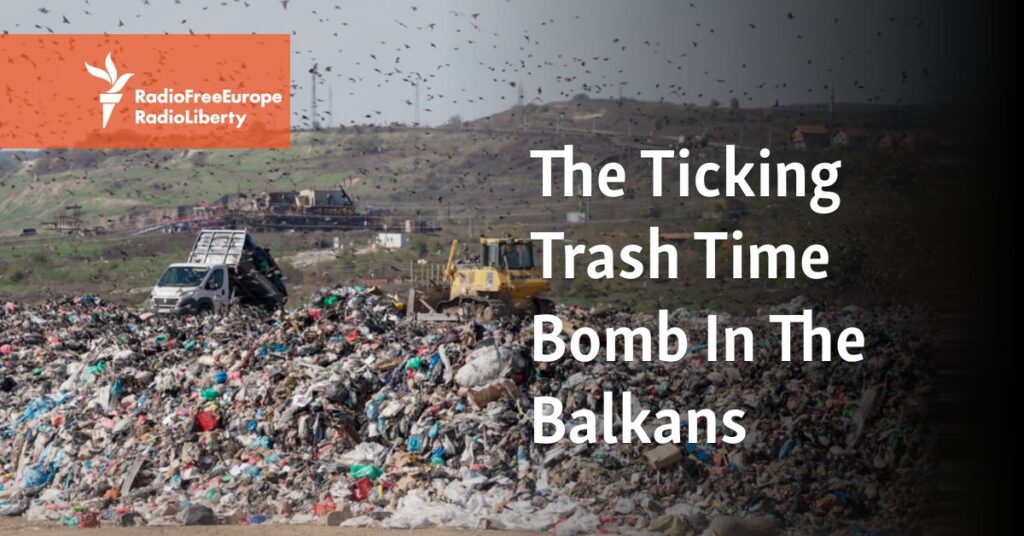Srdjan Milic stands in his backyard in Palaj, a settlement near Obiliq, a town in central Kosovo.
“My father died of lung cancer, as did three of my uncles. They all died relatively young, up to the age of 60,” said Denis Muric, a local activist. “But [there is] one interesting thing — they all suffered from lung cancer. They had no genetic history of cancer before.”
A local doctor, Adem Muric, is also convinced rising cancer rates are linked to the landfill.
“I worked in Rozaje from 2019 to 2023, and there was a clear increase in cancer cases, particularly among the younger and middle-aged populations,” Muric said. “Dozens of people from nearby villages have died from lung cancer.”
For decades, waste — up to 6,500 metric tons a year — has ended up at the Mostina waste dump. In 2012, local officials announced plans to close it down, but more than a decade later the landfill still operates. Activists say waste of all types ends up there now, including tires, which are often burned, posing an additional environmental risk.
The Mostina waste landfill in the Rozaje municipality in Montenegro
The government has announced a new regional landfill to be built by 2025, as Podgorica worries failure to resolve this environmental crisis could complicate the country’s European future.
“If we do not resolve this issue…Mostina and many other landfills — unfortunately, there are around 340 of them in Montenegro, including illegal ones — all of these could become an obstacle to Montenegro’s entry into the European Union,” said Damjan Culafic, Montenegro’s environmental minister.
After public pressure and protests, authorities have increased monitoring of Mostina, and burning waste at the site was largely halted in September.
But local residents continue to press for more action and Muric has filed a lawsuit for officials mismanagement of the landfill.
“When the smoke from the landfill reaches us, it completely fills this place, and we can’t see each other because of the smoke,” Denis explained.
With EU states hoping to hit recycling rates of at least 50 percent by 2030, Kosovo, Albania, and Montenegro have much work to do to catch up.
Source link : http://www.bing.com/news/apiclick.aspx?ref=FexRss&aid=&tid=67403eb53fe44744a6f71946949f3349&url=https%3A%2F%2Fwww.rferl.org%2Fa%2Fpollution-balkans-kosovo%2F33210735.html&c=10018179073476987016&mkt=en-us
Author :
Publish date : 2024-11-21 22:45:00
Copyright for syndicated content belongs to the linked Source.
